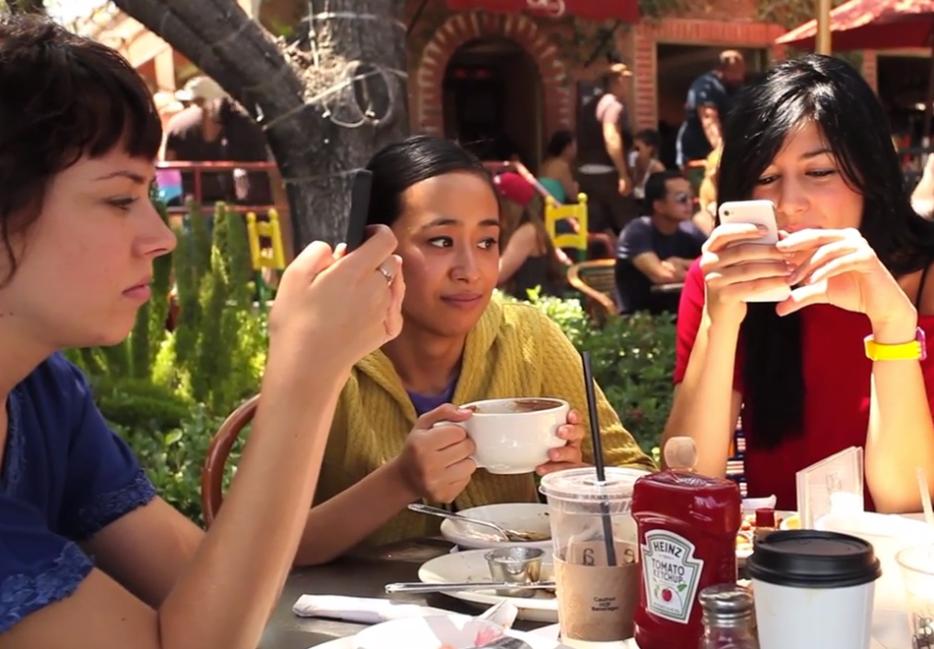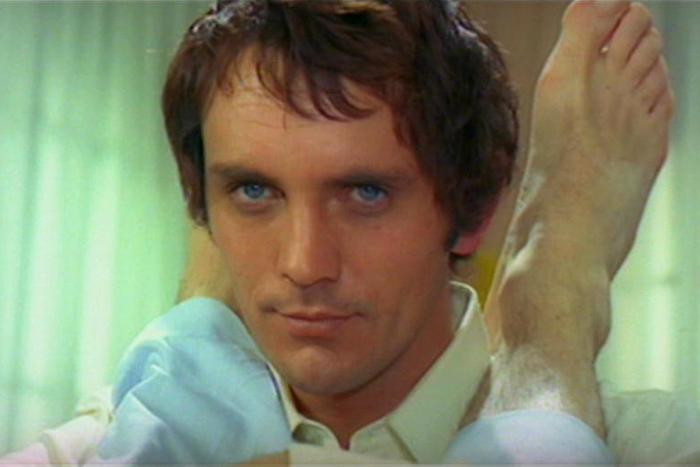Would you be happier if you left your smartphone at home? That seems to be the idea behind a viral video called “I Forgot My iPhone.” Written by and starring Charlene de Guzman, the short clip features a series of familiar clichés about the use of technology: People sitting around a table, glued to their screens; someone on the phone as, behind them, a beautiful sunrise crests over the horizon.
It seems to have resonated: Currently, the video has amassed over 12 million views on YouTube. And why wouldn’t it? Reminders to unplug, undergo a “digital detox,” or reconnect with what’s truly important abound. Together, they seem to represent a simmering feeling that something about how technology fits into modern life just isn’t good for us.
Ubiquitous as the sentiment may be, though, I’m conflicted. There are good reasons to be skeptical of the “common sense” feeling that the digital actually alienates us from a supposed plane of existence that is more human, more pure, and more authentic. Nathan Jurgenson, who specializes in critiquing these sorts of things, argues that de Guzman’s video in fact works best when thought of as a critique of rudeness, rather than techno-dystopia. What’s more, he also suggests the video’s maker—and those who identify with her obvious technophobic sympathies—are positioning themselves as unique flowers who, just like others who push their purity fetishes too far, feel that they alone “get it.”
Jurgenson’s criticisms are spot on, but what irks me more about the video are the equivalences it makes between unadulterated moments and digitally “corrupted” ones. I think we’d all agree that, all things being equal, we prefer physical connection to digital, and our experiences to be as unmediated as possible. The trouble, though, is that life is almost never a series of decisions in which “all things are equal.” We are rarely presented with neatly symmetrical choices between a fully present connection with another human being that fulfills all our needs and a stilted Facebook chat, or watching the perfect sunrise and feeling at one with creation and missing it entirely to chat with someone about nonsense on the phone. Real life is an ongoing set of compromises, and digital media is one of the mechanisms through which we make those decisions.
How do we know, for example, that the person taking a photo of a sunrise isn’t doing so to show it to an ailing, housebound relative? What if you love your friends but, on that night, are engaged in a text conversation with someone with whom you feel you are developing a truly profound connection? Why should we rank pleasure or humanity based on the extent to which it immediately presents itself to our physical bodies? One occasionally imagines that digital naysayers have never had to settle for a late-night text conversation or video chat because of distance, economic constraint, or a whole other range of reasons for “making do” with digital, and instead are living perfectly unmitigated, purely spiritual lives. Life is always mediated through the filters of emotion, context, circumstance and, yes, technology. There is never a pure moment to recuperate, and perpetuating that ideal is at best naive, and at worst, damaging.
And yet, something still nags at me: The twelve million people who watched the video—many of whom, I think it’s safe to assume, agreed with some aspects of it. The fact that “I Forgot My iPhone” is so popular represents a funny paradox in which the thing being represented isn’t necessarily “true,” but feels like it could be. After all, if people en masse believe they are less happy and less connected because of tech, then there’s at least some truth to that.
What makes dismissing that sentiment harder still is a growing body of work that shows certain uses of platforms such as Facebook can, in fact, make people sad. There’s something about witnessing the carefully curated fragments of others’ lives that makes it more difficult to maintain happiness in one’s own—a fact that any privileged person who has browsed their Instagram feed on a Sunday in summer can probably attest to.
What, then, to make of the seeming contradiction between such poorly formulated arguments against tech and a sense that something isn’t quite right? It seems the answer lies not so much in broad categories such as “technology,” “digital,” or “the web,” as much as in considering how specific aspects of those things are manifestations of particular historical and economic forces and interests. Think of it this way: The Internet itself isn’t evil, but what is Facebook if not a thing that relies on us incessantly sharing and documenting our lives and comparing them to others’ in perpetuity? The companies and platforms that, for many of us, comprise our experience of the web, have built structures that play to human emotion and desire with ruthless efficiency. Like any phenomenon, you can use these things against the grain, but by and large, we are embroiled in systems meant to extract something from us, whether that is time, feeling, data, or money—and not being able to shake the feeling you should be photographing this moment or checking your phone is part of that.
Is technology inherently alienating or disconnecting? Well, no—it isn’t inherently anything, but our current exposure to digital technology is shaped and purposed by a set of large companies who have gotten really good at exploiting human sentiment. Oversimplifying the discourse to say that it is “technology” in general that it is blame for our alienation—rather than the networks and entities who are dominating those tools—is only hurting, rather than helping the situation.






